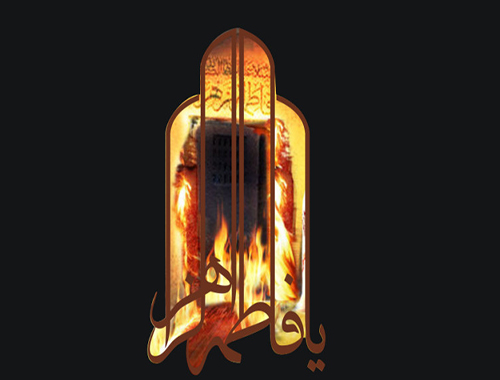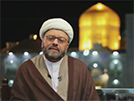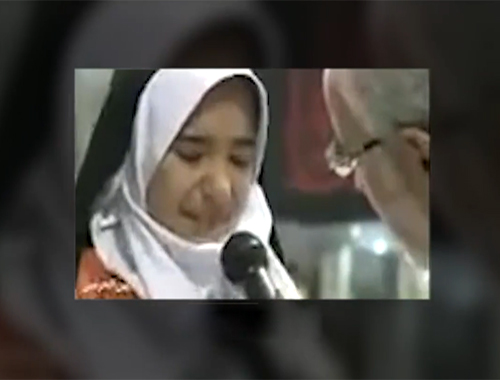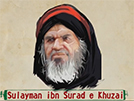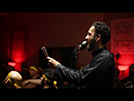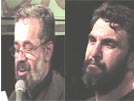
Abu Bakr, son of Abu Quhafa, was the first caliph after the Prophet's demise. There are differing views on his name being either 'Abd Allah or 'Atiq. Apparently, many individuals have insisted on saying that his name was 'Abd Allah but he had previously been called 'Atiq. He belonged to the Banu Taym tribe, one of the tribes of the Quraysh.
During the Dark Age, this tribe maintained minimal special standing among the other tribes. This claim is evidenced by Abu Sufyan's words once Abu Bakr assumed power. He said, “How come the government has fallen to the least populated and meanest tribes of the Quraysh?” [Abd al-Razzaq, al-Musannaf, vol. V, p. 451; Mustadrak, vol. II, p. 78]
There is a story that one day, Abu Bakr was speaking with Dhaghfal about his lineage and both agreed that Banu Taym was one of the weakest tribes of the Quraysh [Majma‘al-amthal, vol. I, p. 27]. Another time, Abu Bakr asked Qays Ibn 'Asim why he buried his daughters alive. Qays Ibn Asim replied, “So that they do not give birth to children like you.” [Ibn Abi l-Hadid, Sharh Nahj al-Balaghah, vol. XIII, p. 177]
There are different views also on his occupation prior to the advent of Islam. Those who intended to attribute a high position to him in the Dark Age said he was a merchant. On the other hand, there are documents that say he had menial jobs such as milking and of that nature. [Al-Faiq fi gharib al-hadith, vol. IV, p. 12]
Another story says Abu Bakr had financial problems and was a teacher in the Dark Age and later, became a tailor following the advent of Islam. [Al-Ifsah, p. 176]
Abu bakr was two years younger than the Prophet of Islam and he is considered to be among one of the first Muslims. There is however conflicting ideas concerning whether he was the first or the fifty-first Muslim as one quotation has put it. [As-Sahih Min Sira al-Nabi, vol. I, pp 247,289,290]
Such notions about him are natural considering he was the first caliph. We have not heard about any special pressures he may have faced in the years of invitation to Islam in Mecca. He did not accompany the Muhajirun to Abyssinia, but he found an opportunity to be with the Prophet (P.B.U.H&H.P) in the night of Hijra. According to various discussions about Hijra, after the Prophet left the house, Abu Bakr went to see Imam Ali(A.S) and when found out that Prophet Muhammad (P.B.U.H&H.P) had gone, he had set off and joined him.
Abu Bakr's relationship with the Prophet (P.B.U.H&H.P) grew stronger following the Prophet's marriage with Ayesha. Ayesha was a clever woman who tried to have a role in all political developments of her time. This helped strengthen Abu Bakr's position to some extent.
Abu Bakr did not have any political or military responsibility during his ten years of stay in Medina, but he could gain power by understanding the situation of the internal wings of the Quraysh and taking advantage of the Quraysh's enmity towards Imam Ali (A.S) as well as the collaboration of the middle wings of the Quraysh. This group was neither among the Umayyad nor the Hashemite.
Abu Bakr grasped a serious chance. When he took over the caliphate, a wave of apostasy and opposition to Islam swept across Hijaz and Muslims who all saw the principle of Islam endangered realized that opposing Abu Bakr was not to their interests.
It is interesting to know that immediately after Abu Bakr's coming to power, rifts emerged between the Ansar and the Quraysh over a sarcastic poem composed by Abu Bakr about the Ansar. Afterwards, the Ansar kept some distance from Abu Bakr and Amr Ibn As who was instigated by the Quraysh spoke against them.
On the other hand, Fal Ibn Abbas and then, Imam Ali (A.S) praised the Ansar. Hassan Ibn Thabit composed poems in praise of Imam Ali (A.S) for his support of the Ansar and implicitly, referred to the efforts of some men of the Quraysh who wanted to take Imam Ali's position [Tarikh al-Ya’qubi, vol. II, p. 128]. However, when oppositions heightened, the Ansar moved towards the claimants of prophet Hood and other apostates.
Abu Bakr reiterated several times that there were some people who deserved the caliphate more than him. After the people swore allegiance to him, he said in a sermon, “I took over the rule over you while I’m not any better than you. If I behave well, help me; if not, guide me. Obey me as long as I am obedient to God; otherwise, you won't need to obey me” [Abd al-Razzaq, al-Musannaf, vol. XI, p. 326; Tarikh at-Tabari, vol. III, p. 336; al-Imamah wal-Siyasah, vol. I, p. 34]. This shows that Abu Bakr believed it was not necessary for a ruler to be the best of the people.
It is necessary to admit that Abu Bakr had an eloquent language and we are sure that it was his clam words at the Saqifa more effective than 'Umar's harsh words, though they were complementary.
Later, Abu Bakr once pointed to his tongue and said, “This is what helped me reach this rank.” [Nathr ad-Durr, vol. II, p. 13]
He has been quoted as saying,” Umar is stronger than me and Salim is more pious” [Nathr ad-Durr, vol. II, p. 15]. But his emphasis on having the rule is surprising. Abu Bakr introduced his government as the “Caliphate of Prophet Hood” to convey the religious aspect of his caliphate. He considered his rule not as a caliphate from God, but a succession to the Prophet (P.B.U.H&H.P) and named himself the “Caliph of the Messenger of Allah”.
His first measure was dispatching Usama's army, an army which the Prophet (P.B.U.H&H.P) had prepared to send to Damascus in the final days of his life. Political opposition caused delays in the deployment of the army under the pretext of Usama's young age. Now that the issues seemed to have been settled, the same people who were opposed decided to send Usama's army in spite of the critical situation on Hijaz.
Responding to opposition against the army's dispatch, they said they could not ignore doing something that the Prophet had wanted. Abu Bakr said he would send the army even if the beasts would tear him apart in Medina [Tarikh Khalifat Ibn Khayyat, pp 100-101]. Usama's army left for Damascus and returned after forty days with no serious clashes. Since the Prophet (P.B.U.H&H.P) had included Umar in Usama's army, Abu Bakr asked Usama to let Umar stay with him.
This article borrowed from Imam Reza.Network.
 Caliphate - Islam Guidance
Caliphate - Islam Guidance